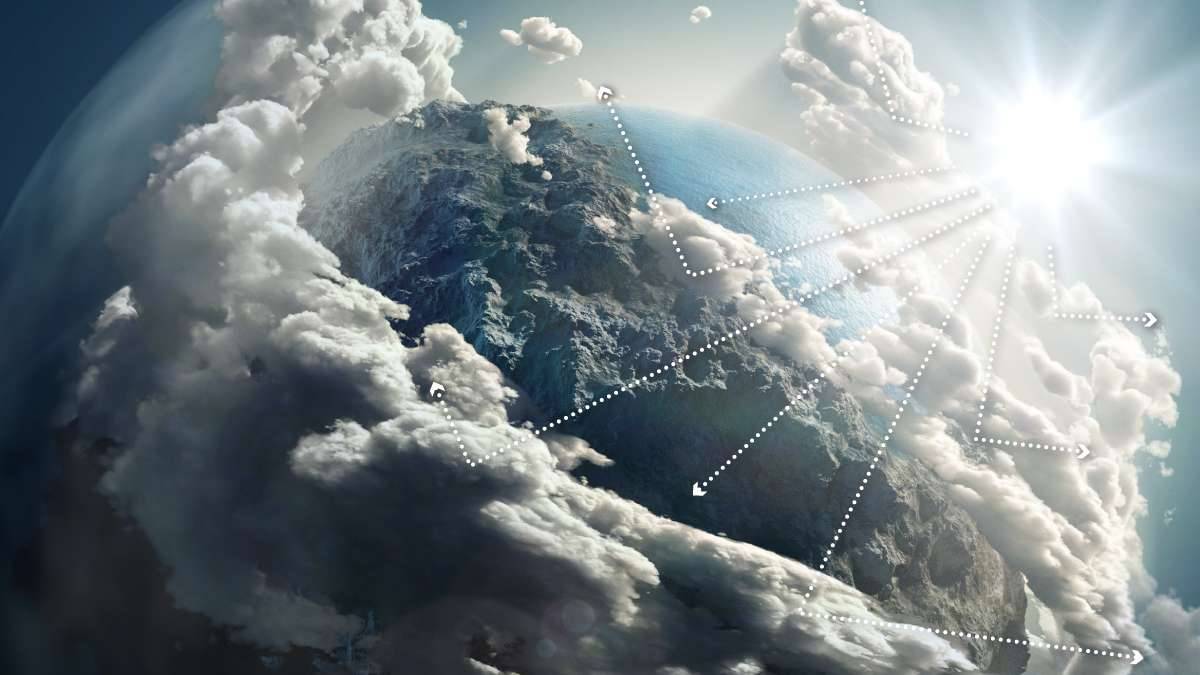
Marine Cloud Brightening
ARTICLES | Jun 20, 2022
Writer: Nuttawut Kulkaew
Editor: Wittaya Wonglor
Marine Cloud Brightening (MCB), spraying chemicals such as aerosols, sulfates, or even sea droplets to increase the amount, binding, and density of clouds in the Stratosphere - an atmosphere layer - is a study that could help humans prevent sunlight from reaching earth by managing aerosolำก clouds reflect the sun's rays and cool the planet.
However, it is still debatable about which chemical aerosol particles to choose, how much the chemicals are enough for a cloud to scatter the sunlight from Earthearth, and to what is the certain degree that is enough. Moreover, there is the question of how the processes affect ecosystems and agriculture in a wide area. In addition, if particles such as sulfate are selected as reagents, there is a potential consequence of solar elimination that the temperature of the low-level Stratosphere may be increased as well as the sprayed sulfate particles can cause sulfuric acid, which rises and be able to destroy the ozone layer, which initially shields the earth from sunlight.
However, a Harvard University study with leading research institutes found that spraying chemicals to reflect sunlight away from the earth can help acreage crops such as sugarcane, rice, cotton, and high water demanded crops. However, the effect may be varied by context, such as the type of plant or the specific context of the area. The research projects were suspended because organizations demanded that the project be halted. One reason is that it could have negative environmental impacts, such as causing disturbances to the monsoon seasons. Another, which may be considered more important, could be an excuse for non-green industries such as oil, coal, and natural gas companies to claim to continue the business because they saw a way to deal with the problem instead of ending the business.
In addition, another reason why such technology is not discussed in a wide range of applications may be the need to ask for cooperation from many parties. It needs to be approved by many agencies in many countries involved and may be affected by the process. Thus Marine Cloud Brightening has not yet been put into practice.
Implications for the future:
- Marine Cloud Brightening technology could be put into action if the global environmental turmoil goes beyond hands. Several countries may collaborate to employ solar engineering technology.
- Environmental impacts, especially marine ecosystems and coral reefs, need to be discussed if such technologies are going to be implemented.
References
https://risc.in.th/th/knowledge/%E0%B8%88%E0%B8%B0%E0%B9%80%E0%B8%9B%E0%B9%87%E0%B8%99%E0%B8%AD%E0%B8%A2%E0%B9%88%E0%B8%B2%E0%B8%87%E0%B9%84%E0%B8%A3-%E0%B8%96%E0%B9%89%E0%B8%B2%E0%B9%82%E0%B8%A5%E0%B8%81%E0%B9%83%E0%B8%99%E0%B8%AD%E0%B8%99%E0%B8%B2%E0%B8%84%E0%B8%95-%E0%B8%88%E0%B8%B0%E0%B8%A1%E0%B8%B5%E0%B8%97%E0%B9%89%E0%B8%AD%E0%B8%87%E0%B8%9F%E0%B9%89%E0%B8%B2%E0%B9%80%E0%B8%9B%E0%B9%87%E0%B8%99%E0%B8%AA%E0%B8%B5%E0%B8%82%E0%B8%B2%E0%B8%A7
https://geoengineering.environment.harvard.edu/geoengineering
https://www.belfercenter.org/sites/default/files/2019-06/TechFactSheet/solargeoengineering%20-%205.pdf
https://www.pnas.org/doi/10.1073/pnas.2118379119
https://geoengineering.environment.harvard.edu/publication
https://theconversation.com/solar-geoengineering-could-limit-global-warming-but-canada-should-study-risks-and-benefits-first-162230
https://www.dw.com/en/solar-geoengineering-global-warming-cooler-planet/a-58051069
https://www.geoengineeringmonitor.org/wp-content/uploads/2021/04/marine-cloud-brightening.pdf
https://www.sdgmove.com/2021/07/08/solar-geoengineering-yes-or-no-reducing-global-warming-with-little-to-no-effects/
Discover more about us at www.futuretaleslab.com
or follow us at https://twitter.com/futuretales_lab











